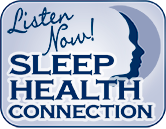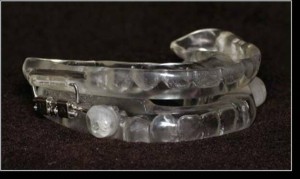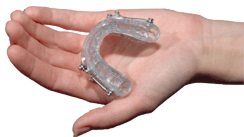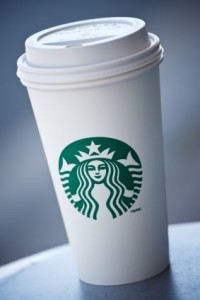Are Oral Mouth Devices to Control Snoring and Apnea Easy to Get Used To?
Patients indeed are often very surprised by how quickly they get used to wearing their oral mouth devices for snoring and apnea. Many of these patients had previous attempts in wearing night guards that help treat teeth grinding during sleep. Even if they were unsuccessful wearing those devices, many oral appliance patients get accustomed to oral appliances that treat apnea and snoring quite nicely.
Side effects of discomfort and drooling usually are very short-lived and dissipate in the first few weeks. The far majority of our patients who have received an oral device at our practice are sleeping through the night within the first week of receiving their custom device.
Studies have shown that patients who have been prescribed an oral device for the treatment of apnea tend to keep wearing the device over the years to come, approximating to 80% long-term compliance. This compares to 40-60 % of CPAP usage studies. With our guidance and experience, we find that this number is even higher. Most of our patients continue to use their oral device once proven to be effective.
Dental Sleep and TMD Center of Illinois, a premiere snoring and apnea treatment center in Naperville has been providing the CPAP alternative treatment of oral appliance therapy for over 17 years successfully. We are extremely passionate in helping individuals that have been struggling with CPAP therapy in Naperville, Lisle, Aurora, Bolingbrook and surrounding Chicago suburbs. For more information on this physician-recommended treatment option visit www.TiredOfSnoring.com or call us at (630) 369-5508.









(630) 369-5508